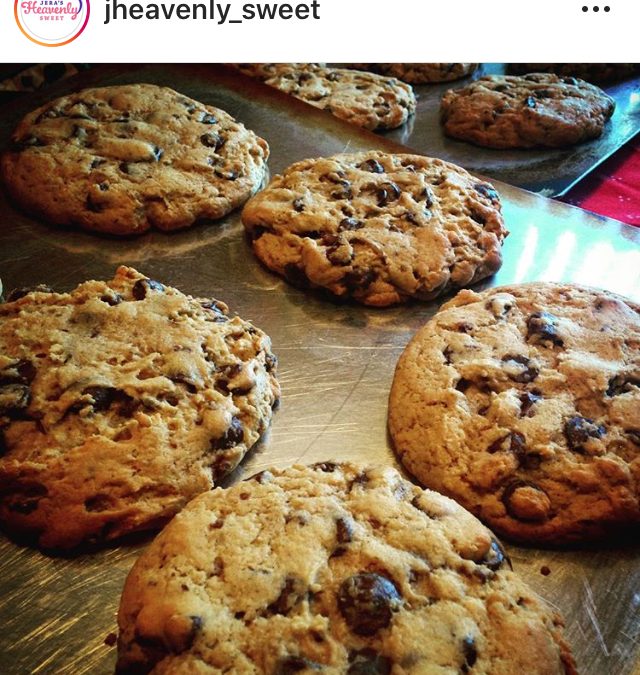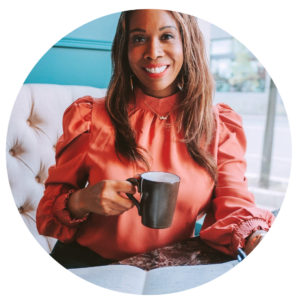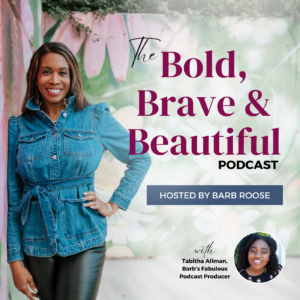I’ve spent my entire professional life and at times, large portions of my personal life as the lone chocolate chip in the cookie or the only brown face in an all-white space.
I grew up in a middle-class to upper-middle class community that was beyond 90% Caucasian. In my childhood, our family lived on the side of town with all of the other black families, in a series of large apartment complexes far from the more upscale housing.
By the time that I entered junior high, my parents moved us across town to a house where there was only one other black family in the entire neighborhood.
It was during this same time that I decided to take the advanced English class at school. I loved writing and a beloved sixth grade teacher named Pete Frazier told me that I was a good writer and encouraged me to work hard at getting better. However, saying “yes” to taking advanced classes meant that I would have to leave the safety of the few other black kids at my school (99% of whom were my cousins).
As a 12-year old kid, I felt conflicted. I wanted to say “yes” to the academic challenge and go where no black kid had gone before. Yet, I feared leaving my safe community of cousins who had my back. I wondered if they felt that my abandonment meant that I’d no longer have their backs?
I didn’t have language for it back then, but my struggle was whether or not my decision to be a brown face in a white space made me a token or a trailblazer. I’ve wrestled with this question in varying degrees of intensity for the last 30 years of my life.
What do I mean by token or trailblazer?
- A token is the lone person of color in a friend group, office or other gathering. His or her non-threatening presence allows the majority to feel good about themselves. While the token seeks a specific goal or desired connection, his or her token presence may preclude the group from addressing potential racial blindspots, bias or begging questions like “Why is he or she (token) always the only one?”
- A trailblazer is a person of color who goes where none or few have gone before to specifically break down racial barriers. Trailblazers call out and speak out whenever they see microaggressions or racism. A trailblazer’s presence in an office or association is often tense, at best tolerated. Their personal experience as the only brown face in a white space is often painful, isolating and discouraging.
For every black person who has been the “one black friend” at the birthday party, in their office or social club, that question of token or trailblazer teeters on a fine line, like whether or not a cookie is well baked or if it’s now burning.
I can’t tell you how many times I’ve asked myself, both as a token and trailblazer: Is this even worth it?
Recently, Ruby Bridges turned 65 years old. If you don’t know who she is, click here. It’s remarkable that as a young girl, federal marshals walked her into school so that she’d be the first brown face in a white space. Ruby’s courage made room for other brown faces to move into better funded white academic spaces. and institutions.
I wonder about how young Ruby felt once the spotlight faded? How hard was it looking around and wondering whether or not it was worth it? Did she wonder if she was a token or a trailblazer, too?
In 1964, James Meredith wrote a letter to the Kennedy administration after he’d applied to attend the University of Mississippi and was denied admission because of segregation laws. He asked the president only one question: Am I a citizen or am I not a citizen.” It took action by the Fifth Circuit of the US Court of Appeals and US soldiers to hold back a mob and accompany Meredith onto campus where he registered as a student and became the first black American to graduate from Old Miss as well.[1] Clearly, Meredith was a trailblazer, but for some, I’m sure that he filled the token spot as well.
Why this discussion about tokens and trailblazer? Today’s post exists because there are more brown faces moving into white spaces for the first time. I want to offer some language and insight into what I didn’t realize or understand years ago.
Also, that token or trailblazing colleague, neighbor or staff member may not come right out and share some of this stuff, so I want to say it for them until they find out if you’re safe enough for them to use their voice. Until then, the following is just for you to listen and understand. No need to try to fix. Really.
Let’s start with a few basics:
The Cost of Being a Token or Trailblazer
- Both tokens and trailblazers pay a cost for their presence.
- Tokens often trade their identity for security in that unsafe space.
- Trailblazers keep their identify, but often lose security. For example, James Meredith was eventually shot. (He survived and spent his life as well-known civil rights advocate.)
The Key to Surviving as a Token or Trailblazer
For me, the key to knowingly accepting an invitation to the sole chocolate chip in a beigy-space cookie is knowing who I am and the power that I have in my own agency.
Let’s talk about chocolate chips for just a moment. Um, yum! They’re rich, velvety, full of flavor and add depth and an appealing contrast to the vast landscape of the cookie dough. Just like the more chocolate chips, the richer the experience, I’d like to think that the same can happen where majority culture sees that an uninterrupted beigy-space could excel and achieve more if they add some chocolate chips to the mix. (P.S. Today’s post photo is from my friend, Jera’s Heavenly Sweet bakery. She makes the best chocolate chip cookies in the world!)
As a black woman, I have a lot to offer in who I am, how I’ve been raised and the strength that I’ve gained because of the rich color of my skin.
If I have a great opportunity, but suspect that I might be a token, I can exercise my power to say “yes” or “no” depending on whether or not what I will receive outweighs the cost. I also have to accept that my token presence may soften any tension for decision makers to have the necessary hard conversations about organizational blindspots when it comes to racism.
On the flip side, in times when I’m a trailblazer, I have to accept that I can’t control others or outcomes. My presence may not change anything, but I can’t pretend like my presence can control others either. It takes time for systems to change. And while it’s been well past time for change to happen, it’s still going to take time. Frustrating, but true. So, I’ve must ruthlessly pursuit emotional and spiritual wellness to offset the stress of being in an environment that may only tolerate me.
Questions that Tokens and Trailblazers ask…
Whether it’s the lone black person in the C-suite, a company, a school or friend group, when you’re the only chocolate chip in the cookie, you ask yourself hard and painful questions like this:
- Do the people around me believe that I’ve earned this or that I was picked only because I’m black?
- Will they accept that I’ve achieved this or will they tolerate it?
- If I ask for my rightful place, but will they let me stay or will they make my life miserable?
- Do I make waves when something is wrong or keep my head down so that I don’t mess it up for the next black person that might come along?
- Am I safe enough to bring my real-est self?
…Like 30 years ago when I was voted homecoming queen my senior year, making me the first black homecoming queen in our school’s 150+ year history. I wondered, Will they accept that I’ve achieved this or will they tolerate it?
…Like 20 years ago when I was hired by one of the world’s largest pharmaceutical companies during their expansion. I wondered, Do the people around me believe that I’ve earned this or that I was picked only because I’m black.
(Even after I won the company’s top sales award my first year, that question still persisted.)
…Like when my senior pastor courageously extended an invitation for me to join the teaching team at my church back in 2005 – an almost unheard of occurrence for a black woman back then to become a teaching pastor at one of largest and fastest growing churches in the country. I wondered, Do I make waves or keep my head down so that I don’t mess it up for the next black person that might come along?
Here’s where I’ve landed…
- When it comes to whether or not I’m a token or a trailblazer, I’ve accepted that I’ve been either or and both, depending on my goals, convictions and opportunities. Even now, as a full-time speaker and author, I still have to navigate the tension between the two.
- I’ve given myself permission to let go of the stigma or self-judgment that comes from being a token. Black people have demonized the term and at times, rightfully so. Yet, someone has to go first and often, the first is the only for a long time.
- If I am a token or a trailblazer, I must hold onto my identity and integrity as well as let go of resentment and bitterness.. When I can’t, then it’s time to go.
COMMENTS: What do you think about these concepts of “tokens” and “trailblazers”? What makes you think or uncomfortable. If you’re a person of color, what’s been your experience? So, you’re welcome to share your thoughts in the comments below. Be respectful. Be kind.
[1] Cara Meredith, The Color of Life: A Journey Toward Love and Racial Justice (Grand Rapids, MI: Zondervan, 2019), 61-63.


Want to learn more about race, grace and the gospel?
Visit my (g)race project page to read, watch and hear more about race, grace and the gospel. Click here to visit.



This is a powerful, thought-provoking read. Loved the analogy of the chocolate chip cookie. Thank you
Thank you for stopping by and reading the post, Kathy! I’m grateful that it served you.
Barbara, whether token or trailblazer, you, my friend, are 2 other “labels” as well…
1. A true inspiration. You zest and love of God and life shines through you.
2. Real. You don’t pretend to care when you truly don’t. You keep it real, all of it, the good, the bad, and the ugly.
I am honestly grateful for you and genuinely happy for your words, but mostly for your success!
Oh Debi, thank you for these kind words. Thank you. I pray that my words always bless and encourage everyone who reads them.
WOW! Barb, thank you for sharing this with us. Your thoughts and experiences can become either a syndicated column in newspapers or your next book!!! I’m serious….I saw the title as I read this…..A Brown face in a white space…Am I a token or a trailblazer? This is so eloquently written from your authenticity and life’s experience and helps white people to see through the eyes of another person. I am on the board of the Northwest Indiana Urban League and have been asked to write about my take (as a white person) of what is occurring in our world today for our region’s newspaper. I am honored to do so. Would I have your permission to quote a few lines from this article giving credit to you as the author of them… I would state your name and title (author and speaker)? If you don’t reply, I’ll take that as a “no”. I would never quote you without your permission and what I write would be held in the highest light as that is how I hold you 🙂
Hi Connie! So good to hear from you, my friend! Of course, you’re welcome to quote from the post if it will serve your audience well. I am grateful that you’ve been asked to share your insights. You’re heart and wisdom will be a blessing to all those who read.
I am sick to my stomach (literally, at this moment) that my black family, friends and fellow citizens have to even consider the question of token versus trailblazer. It’s an outrage to even need such a discussion.
But this is your reality, Barb, and that of so many other people. And since you asked, here are my thoughts on your question:
– You’ve analyzed and explained something that is socially complex in a way that makes it easier to understand. Thank you.
– I can’t imagine how it must feel to be welcomed into a group and to be constantly wondering, “am I here because I belong / have earned it, or because the group needs to look integrated?”
– People need to stop using a person’s skin color as a preface in their conversations. For example: my black friend, this black guy I work with, this black kid at my school, etc. To me this helps fuel the unfair token / trailblazer role that a black person must accept.
Thanks for a very intelligent and thoughtful post. If my heart on any of this is wrong, please tell me. 🙂
Rod, you know how much I love your heart! Thank you for sharing your input and your insights. Blessings to you, my friend.
Powerful, Barb. Thanks for being real. Love you even more.
Thank you, Janet. Writing these posts are hard, but sharing them is much easier because of dear friends like you.
Thanks for sharing this. It helps as a white person to understand your thoughts and doubts about how you are/were perceived by those at work, church or wherever. I dream about a day when those issues don’t even occur in a black or brown person’s mind. It will be heaven on earth, won’t it? Life can be hard enough without racism rearing it’s ugly head. I will continue to pray that God will open the minds and hearts of those who judge others by what race they are. Thank you for what you do to make all our lives better! May God continue to bless your work.
Hi Irene, I join you in that prayer that God will open hearts and minds, too! Thank you for checking out the post and joining the conversation. Blessings to you!
Barb:
Thank you for bringing clarity to this. ❤️
For the record, cookies without chocolate chips aren’t worth the calories. I like the depth and wisdom you bring to every interaction we have.
I am crazy about you, friend.
Amberly, you are all kinds of brilliant! Cookies without chocolate chips aren’t worth the calories – yes! Thank you for laying down that brilliance and your friendship. Love you!
I understand this is the reality you live with, Barb. I see you as a respected voice of truth. When you speak, I listen because I know I’ll learn from you — sometimes hard things I’ve never realized before. Keep showing up. Keep talking. Keep being you.
Beth, thanks to friends like you, it’s safer to speak up and share my experiences. I appreciate your love and support!
Barb, thank you for this insight. Sometimes being the only “light bright” in a gathering is a time to just be. Laugh with people who feel like laughing play games with those who feel like it. And people who steer clear of me, allow them space. Feel sad, but that happens rarely. I can’t imagine that situation ongoing in my life. You have handled it well and I only see a strong, intelligent, beautiful woman.
Hi Katheryn, thank you for reading the post and sharing your thoughts with us!
Thank you for so succinctly articulating the struggle of being a “chocolate chip.” In a profession where only 4% is black, I am often faced with the token vs trailblazer internal debate. Neither role is comfortable, but both serve a purpose, depending on the situation. At core I’m an advocate and I find that knowing that clarifies whether I need to be token or a trailblazer. Some situations are like arcade games and need a token, some are like Jeopardy and need a trailblazer. Thank you for writing another thought-provoking post.
Hi Jacqueline, thank you for letting me know that you’ve felt the tension, too. I love your arcade game/Jeopardy illustration – briallant!
As I see more and more of the black-white interaction, or lack of it, I begin to wonder why we even need to pay attention to the color of a person’s skin. Admittedly, I know little about the real problems that people of color face, since I was raised in a small, very rural, New Hampshire town I never even saw a person who was not white until I went to college. Even though I now live in a small, rural community in Connecticut, people of color are no longer a novelty to me. I do believe that all people should be accepted for who they are instead of the color of their skin. That’s what I hope I do when among people (not often in the days of coronovirus when I must take great care of where I go as a high risk person).
Hi Edna, thank you for sharing your comment and experience with us.
I appreciated how you shared too, and I just humbly wanted to share a thought. There is a part of me that wants it to work that way too, but as I continue to learn and listen, I see that it just…doesn’t. I see how Barb’s experience, like she shared here, reveal how much work there is to done. Not only within my own heart and my own awareness, but also by me in my community for people of color. I am seeing that we each need to take part in creating communities where we seek to see and understand our differences. Then we can celebrate together when it’s good, fight against the differences (together) when it’s not, but always see them because it’s a part of who we are.
This is beautiful, Marna. Thank you for reading and listening.
Your third point really sums it all up, “ If I am a token or a trailblazer, I must hold onto my identity and integrity as well as let go of resentment and bitterness.. When I can’t, then it’s time to go.”. No matter where life intersects, we must choose to be true to our identity because that is the one non-negotiable we cannot live without. Thank you for a beautiful read!
Patrice, thank you for stopping by and sharing your thoughts. It was a tough topic to write about, so your comment is an encouragement to me.
Barb, thank you AGAIN for going here. You are brave, courageous and one of my favorite gifts God has given me in my life.
I am asking God to continually open my eyes to SEE color, just as you said, “As a black woman, I have a lot to offer in who I am, how I’ve been raised and the strength that I’ve gained because of the rich color of my skin.”
I want my life to be richer and it is just having you in it. May I become a woman who recognizes when someone feels like a token and support them, let them know they are valuable and wanted. May I recognize a trail blazer and encourage her to keep going!
Lynn, that is a beautiful prayer that you’ve written – absolutely beautiful. I love that you are allowing God to answer that prayer in your life. I am so grateful for you!